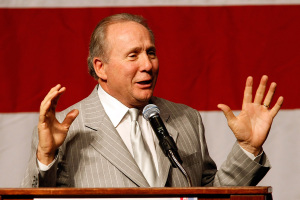Seven Questions to Ask Every Ministry Leader
We have a lot of haphazard ministry being done in our churches around the world. Good people, who love the Lord, aren't thinking through what God has called them to do. Ministry is too important to be done haphazardly. We can't just say, "I'll give it my best shot!" We need to think through what the ministries in our church are all about. Our ministries must be good stewards of all they've been given. For that to happen, we've got to plan ministry strategically.
There are seven important questions that need to be answered when you're planning an effective ministry. These are questions for any healthy ministry – whether it's your music ministry, greeters, small group leaders, or any other ministry team.
1. Why are you here?
Every ministry in your church should have a clear idea of what it's all about. Each one needs a purpose statement. You develop that statement by asking two questions: What is the business of this ministry? And what is none of this ministry's business?
What's the business of Saddleback? We attract members, teach them to worship God, develop them to Christlike maturity, and mobilize them for ministry in the church and a life mission in the world. We do that in each stage and segment of their lives. If something doesn't fit within that mission statement, we don't do it.
Every ministry within your church needs a purpose statement like that. Ask each ministry: What do you do and what do you not do?
2. What purpose of the church does your ministry fulfill?
Every ministry in your church should be tied to at least one of the five purposes of the church. Is this ministry designed to exalt Christ (worship)? Is it designed to reach out to the community (evangelism)? Is it designed to deepen relationships within the church (fellowship)? Is it designed to build people into Christian maturity (discipleship)? Is it designed to serve the needs of the church family (ministry)?
As a pastor, you need to make sure that each of your ministries does one of these five things. If it doesn't, your church doesn't need to be doing it.
3. Who are you trying to reach?
You need to figure out who your ministry is trying to reach – the Community, the Crowd, the Congregation, the Committed, the Core, or the Commissioned. Ministries trying to reach the Community are evangelistic in nature. Ministries that serve those during weekend services are focused on the Crowd. Ministries focused on church members will work with the Congregation. Ministries that help people grow spiritually will center on the Committed. Ministries that meet the needs of people within the church or try to get people involved in the ministry of the church will focus on the Core. And the ministries that help those who've committed to be involved in missions (the P.E.A.C.E. Plan for us at Saddleback) will need to focus on the Commissioned. (For a further explanation of these audiences, see my article from the last issue.)
You need to know who your ministry is trying to reach. The Community has different needs than the Committed. The Congregation has different needs than the Core. Knowing who your ministry is trying to serve will influence how the ministry operates.
4. Where do you believe God is calling your ministry to be in six months?
This is the stage where your ministry leaders dream. Where would they like to see the ministry six months from now? If your ministry leaders can't think about the future, they aren't ready to lead the ministry. Ask your ministry leaders to get away with God and talk to him about the ministry's future.
5. How does your ministry do what it has been called to do?
Did you know that your body has nine systems in it? When any one of those systems gets out of order, it's called an illness or disease. The church (the body of Christ) has systems in it as well. And for us to be healthy our systems have to work properly. How do your ministries do what they've been called to do? Ask your ministry leaders to think and pray about how to do ministry more effectively.
6. Who can you partner with to do what God has called you to do?
Your ministry leaders need to constantly be on the watch for people who can join them in ministry. Ask your ministry leaders to begin praying for at least one person who should be joining their ministry team.
Jesus said, "The harvest is plentiful but the laborers are few. Pray for laborers." Ask your ministry leaders to begin praying for more laborers.
7. In what way do you serve people?
Your ministries should serve the people in your community. Are you meeting physical, emotional, mental, or spiritual needs (or a combination thereof)? All of those needs are valid. Part of understanding the identity of your ministries is to know how each of them serves people. Then look for ways you can add value to the services those ministries provide. In other words, look for ways each of your ministries can do a better job providing for the physical, emotional, mental, or spiritual needs of the community.
______________________________________________
Rick Warren is the founding pastor of Saddleback Church in Lake Forest, Calif., one of America's largest and best-known churches. In addition, Rick is author of the New York Times bestseller The Purpose-Driven Life and The Purpose-Driven Church, which was named one of the 100 Christian books that changed the 20th Century. He is also founder of Pastors.com, a global Internet community for ministers. Copyright 2005 Pastors.com, Inc. Used with permission. All rights reserved.



























